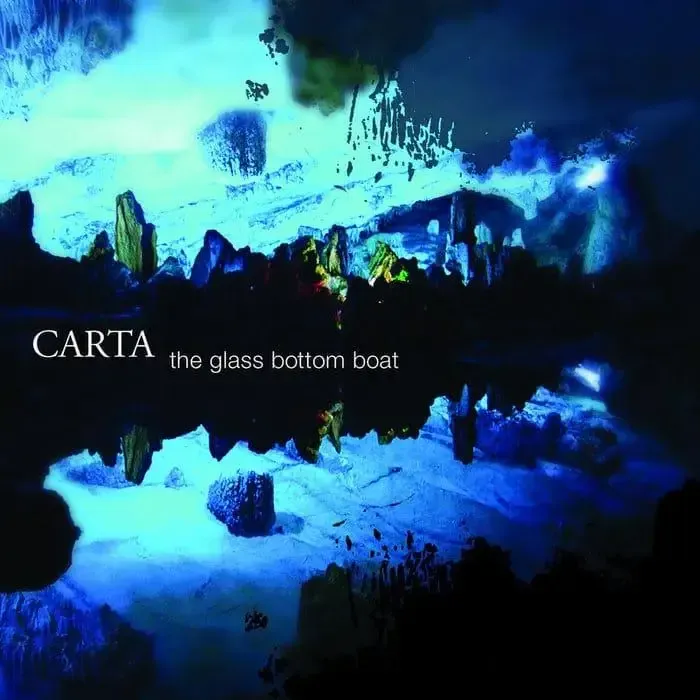The Glass Bottom Boat by Carta (Review)

Any group deciding to make a foray into the realm of instrumental post-rock has to know that they’re going into what’s essentially a saturated market, one in which it will be very difficult to differentiate themselves from the countless Mogwai and Godspeed You Black Emperor! clones who beat them there.
However, San Francisco’s Carta do stick out from the crowd. But unlike many of their peers, they abstain, for the most part, from the usual clichés and standards of the genre. That is to say, you won’t find too many slow-burning build-ups in which guitars churn and string arrangements slowly move towards critical mass until the entire band erupts in an apocalyptic climax. Something which, quite frankly, has been played out quite a bit over the past few years.
Rather, like acts such as Unwed Sailor, Windsor For The Derby, and Early Day Miners, Carta take a much more subdued direction. The focus here isn’t on sturm und drang, or trying to overwhelm the listener with one grandiose arrangement after another. Instead, the nine musicians who make up Carta (on this release, anyways) focus instead on simply crafting strong, intricately layered songs that are just that — songs, and not merely epic-length, multi-movement compositions.
The albums begins with one its highlights, the seven-minute “Kavan,” which immediately sets forth Carta’s modus operandi. Layers of delicately picked guitar melodies, sparse piano melodies, trumpet, cello, and solid percussion all merge and weave in and out of each other in a manner that is much greater than the sum of its parts (though the individual parts are lovely in and of themselves).
There’s absolutely nothing flashy or overwhelming about the song, but it nevertheless winds it way effectively into the listener’s heart and mind. The flourishes — a lonesome trumpet drifting over the music’s surface, a few piano grace notes here and there — are never grandiose, but are no less effective. Indeed, they’re more effective because they aren’t grandiose, but rather subtle and unassuming, drawing the listener in slowly but surely.
Occasionally, on tracks like “Larva,” the band picks up the pace. The drums kick up their feet a bit more, and the layered guitars move a little more deftly as they circle about the listener. However, the overall relaxed, mellow pace of the album isn’t upset as a result. Most of the album consists of songs like “Kavan,” the lethargic, cello-led “Burning Bridges,” and “Simultane” and “Perdido,” which recall Hood circa The Cycle of Days and Seasons (which is about as high a compliment as I can pay).
Also worth noting is that the guitarists — Kyle Monday, Jason Perez, and Raymond Welter — don’t place too much reliance on their effects pedals. Or at least they very skillfully hide any such reliance. Sure, you might hear some delay here and some reverb there, but one doesn’t get the sense that Monday et al. are hunched over dozens of pedals strewn across the floor, trying to find just the right combination to blow the listener’s mind (and eardrums).
If there’s perhaps one word that I can use to describe Carta’s music on The Glass Bottom Boat, it would be “pure.” Whether it’s the focus on honest-to-God songwriting (rather than simply trying to create set-ups for yet another epic, apocalyptic climax) or the lack of reliance on such things as guitar effects to communicate emotion, there’s a sense of purity and simplicity, and of solid craftsmanship throughout the album. There are certainly louder, more grandiose acts out there in the world of instrumental post-rock, but there are few whose music actually sticks out to me — and Carta is one of them.